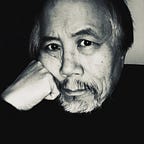How Can I Teach About Palestine Without Criticizing Israel?
At Stanford, Middle East historian Joel Beinin and I taught a class called “Making Palestine Visible.” We did so because we were concerned by how little American university students knew about such an important topic. In those days, we were fighting against not only inaccurate and biased media reports, we were also struggling with the fact that more often than not, there was no coverage at all. Hence it was all the more necessary to have classes that would provide information on Palestinian history and culture and encourage discussion and debate.
Today there is more media coverage. But the forces that work against public knowledge about Israel-Palestine now include a definition of anti-Semitism that conflates critical assessments of the state of Israel with anti-Semitic bigotry, law suits against universities and professors accusing them of anti-Semitism based on lectures, classes, and organizations that present a Palestinian perspective, and organizations and groups from outside the academy “cancelling” courses. And, most recently, actions by companies like Facebook, Twitter, and Zoom to shut down classes, webinars, and web sites have stifled educators on platforms that are increasingly important for the educational mission, and for public knowledge.
We must remember that rulings over cases involving free speech take into account whether the speech is important to the public — in its 1983 decision on Connick v. Myers (461 U.S. 138), the Supreme Court indicated matters of ‘‘political, social or other concern to the community’’ warranted the broadest freedom of speech. Watching the events taking place in Israel-Palestine today, and trying to understand them in a vacuum of information, is impossible. And having informed conversations and debates about this topic is impossible in a classroom that has only one point of view.
Much has been written about the “working definition” of anti-Semitism proposed by the International Holocaust Remembrance Alliance (IHRA). It has not only been criticized for politicizing the definition of anti-Semitism, it also has been condemned by the lead author of the statement upon which the IHRA definition is based. Kenneth Stern wrote in The Guardian: “It was never intended to be a campus hate speech code… This order is an attack on academic freedom and free speech, and will harm not only pro-Palestinian advocates, but also Jewish students and faculty, and the academy itself.” Nevertheless, it has provided the basis upon which teaching about Palestine has been shut down by Facebook, Twitter, and Zoom — platforms that are now critical to education.
International law scholar Neve Gordon notes, pro-Israel organizations are “pressuring Facebook to include criticism of Israel as part of its own definition of hate speech. Their objective, in other words, is to force Facebook to alter the algorithms it uses to detect hate speech so the company’s own algorithms will automatically remove any criticism of Israel from the platform.”
Jewish Voice for Peace has drawn attention to a global campaign, “Facebook, Stop Censoring Palestine.” When it was launching its digital Day of Action, Zoom, YouTube and Facebook banned an open classroom event at San Francisco State University entitled, “Whose Narratives? Gender, Justice and Resistance” featuring Palestinian academic Dr. Rabab Abdulhadi and Palestinian resistance fighter Leila Khaled. Jewish Voice for Peace chapters across the country planning to livestream the event were informed that Facebook had removed the event from their pages, and that these chapter pages were now at risk of being blocked from Facebook. Both Zoom and YouTube refused to transmit the event through their platforms.
These are all acts that have a corrosive effect not only on the kinds of informed discussions we must have around this subject, discussions that we have postponed for too long and with disastrous consequences, but also because these acts are toxic to the educational enterprise as a whole. It turns administrators into censors, faculty into silenced employees, and leaves students poorly informed and uneducated.
Sadly, while people are noting that newscasters on MSNBC have started to present a more balanced picture of what is happening in Israel-Palestine, as have media stars like Trevor Noah and John Oliver, professors at colleges and universities need to omit facts or else present misleading “both-side” depictions out of fear they will be reported on by students who are displeased by what they hear. That reporting can be picked up and amplified by right wing media as well, which then reaches individuals and organizations that pressure university administrators to discipline or even fire those professors. The case of Professor Rabab Abdulhadi at San Francisco State University is worst, but not only instance of this.
To be sure, I am not saying that courses, lectures, or activities involving Palestine should be of value simply because of the topic — I am saying that they deserve the same freedoms as the other courses, lectures, and activities that take place on campus.
I write this on May 14, the day before Nakba Memorial Day. It is a terrible but important contrast between the way the International Holocaust Remembrance Alliance can work to remind the world, as it should, about the horror of the Holocaust, and the ways Israel has made it a crime for Palestinians to remember the Nakba, or “The Catastrophe” which saw over 700,000 Palestinians expelled from their homes and denied the right to return. To be in any morally consistent, we do need to hear both sides.
